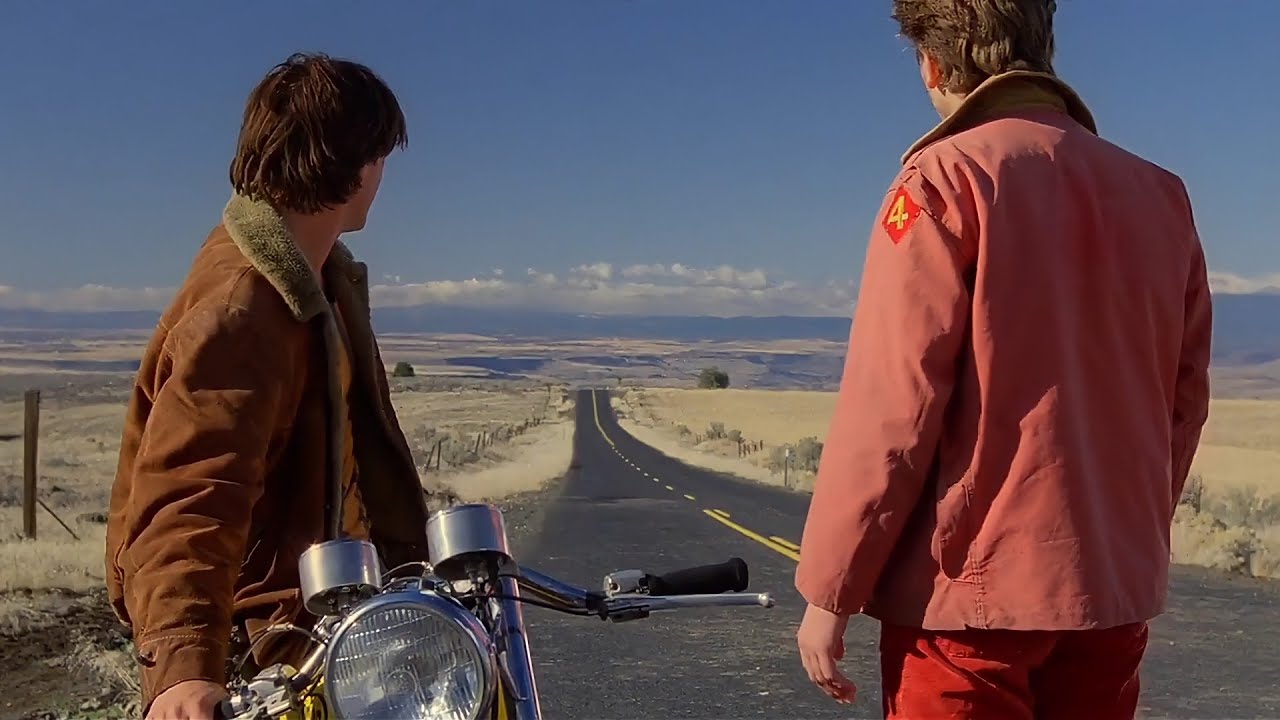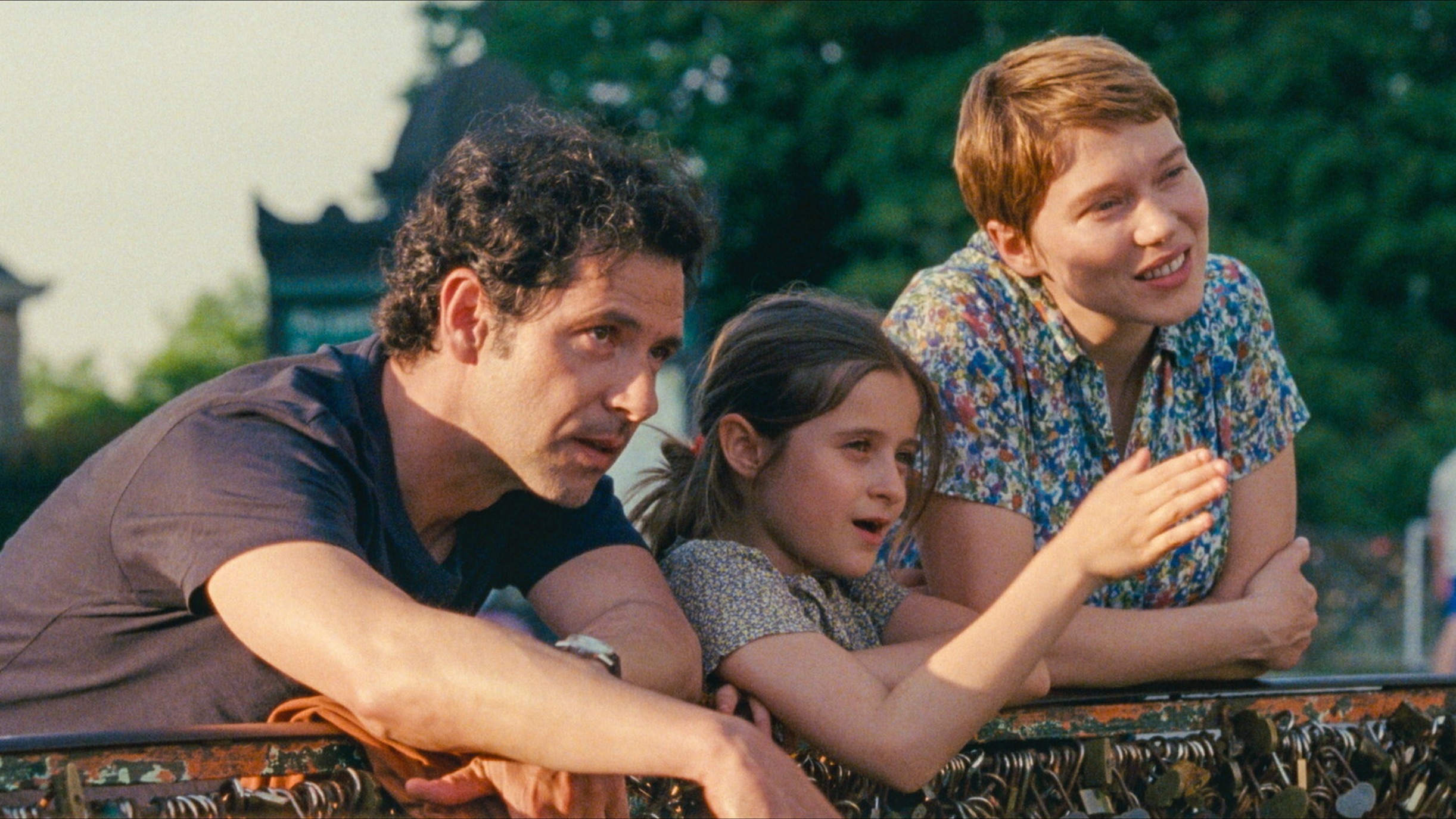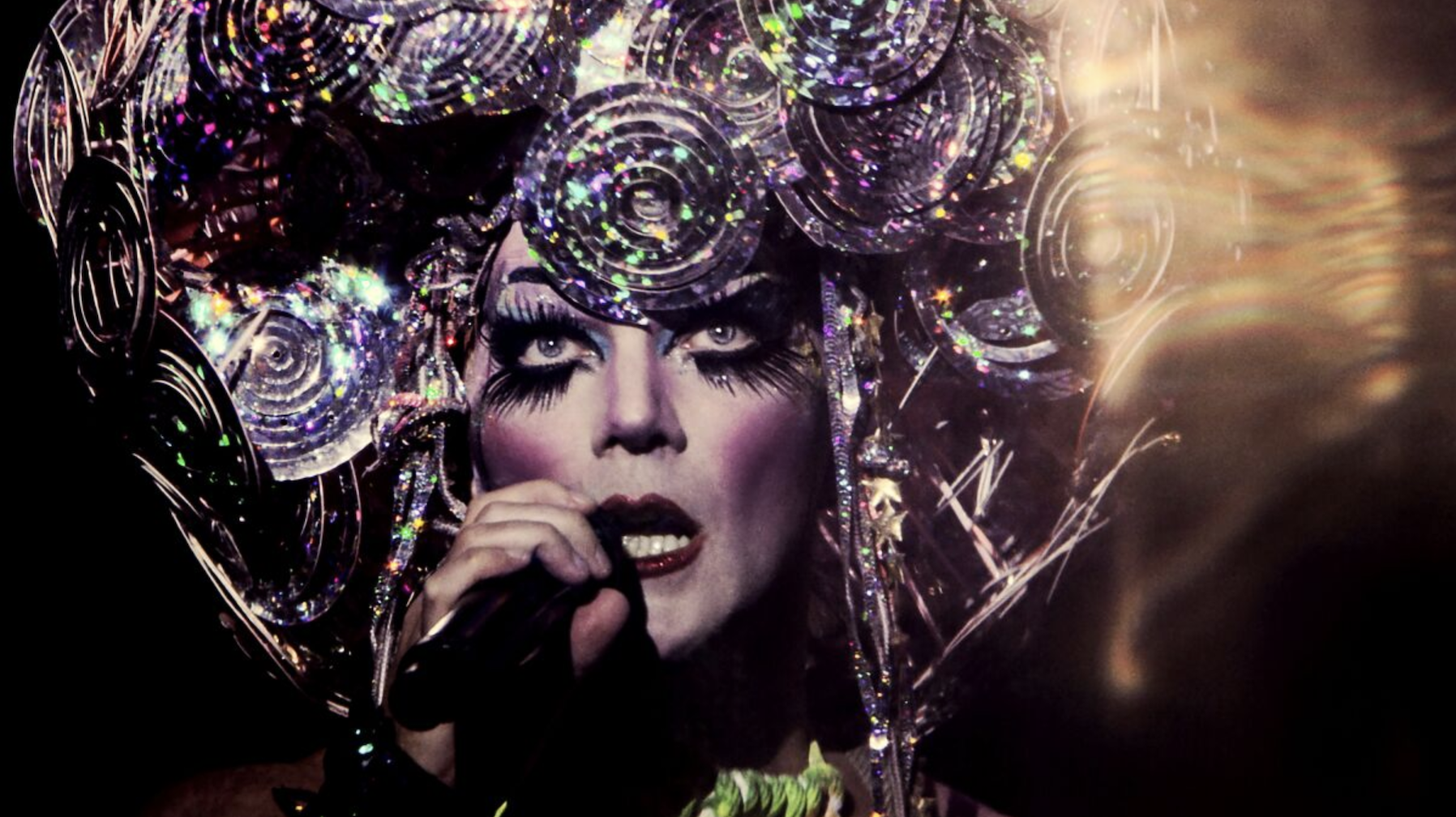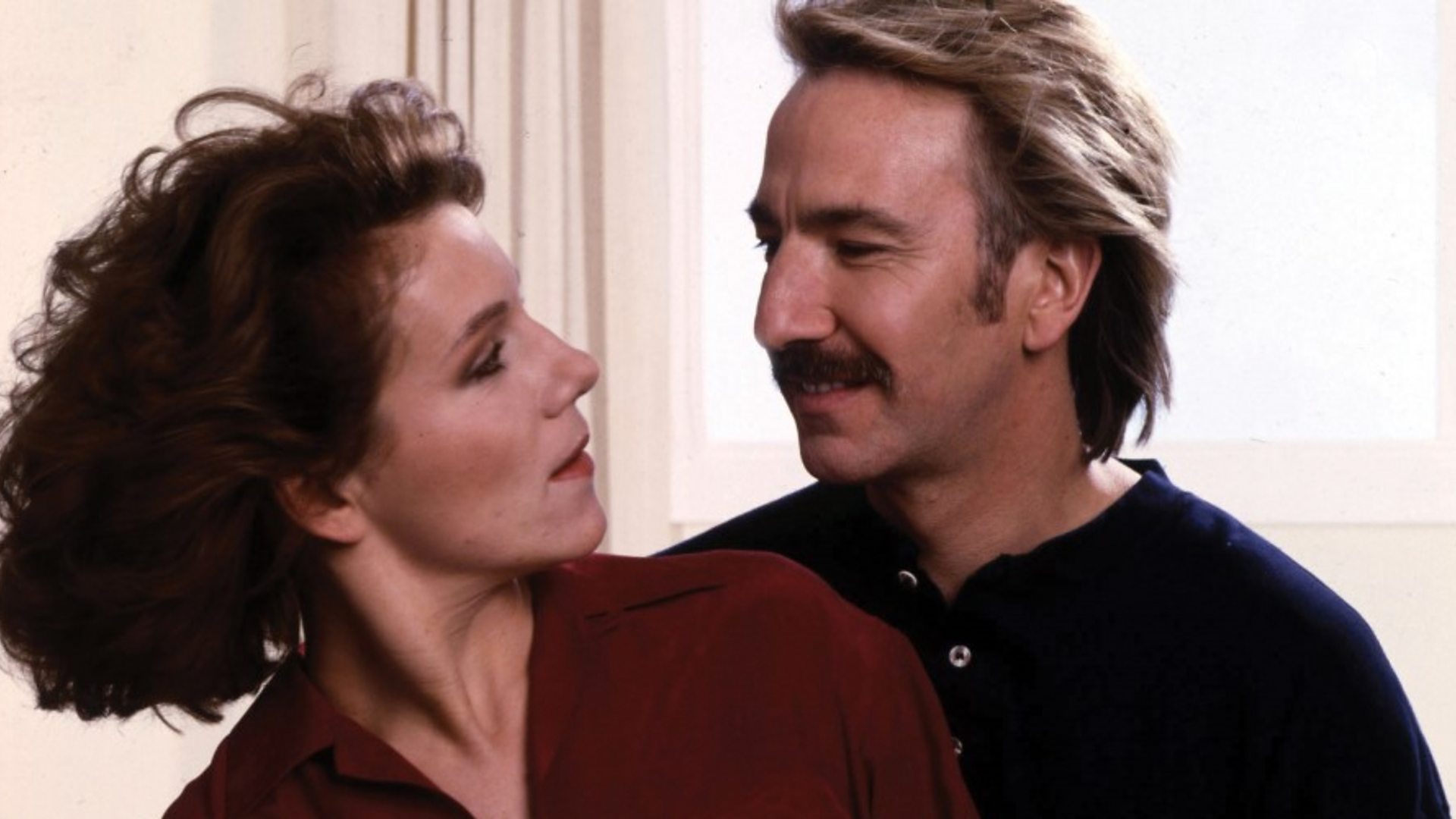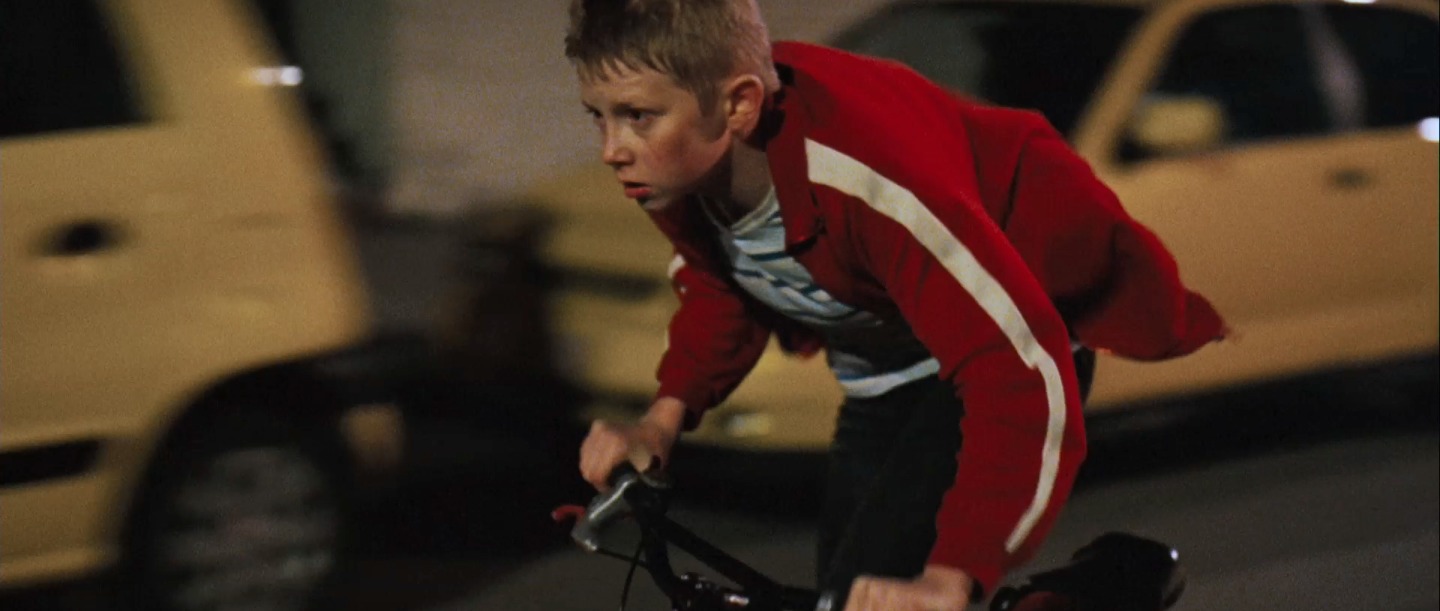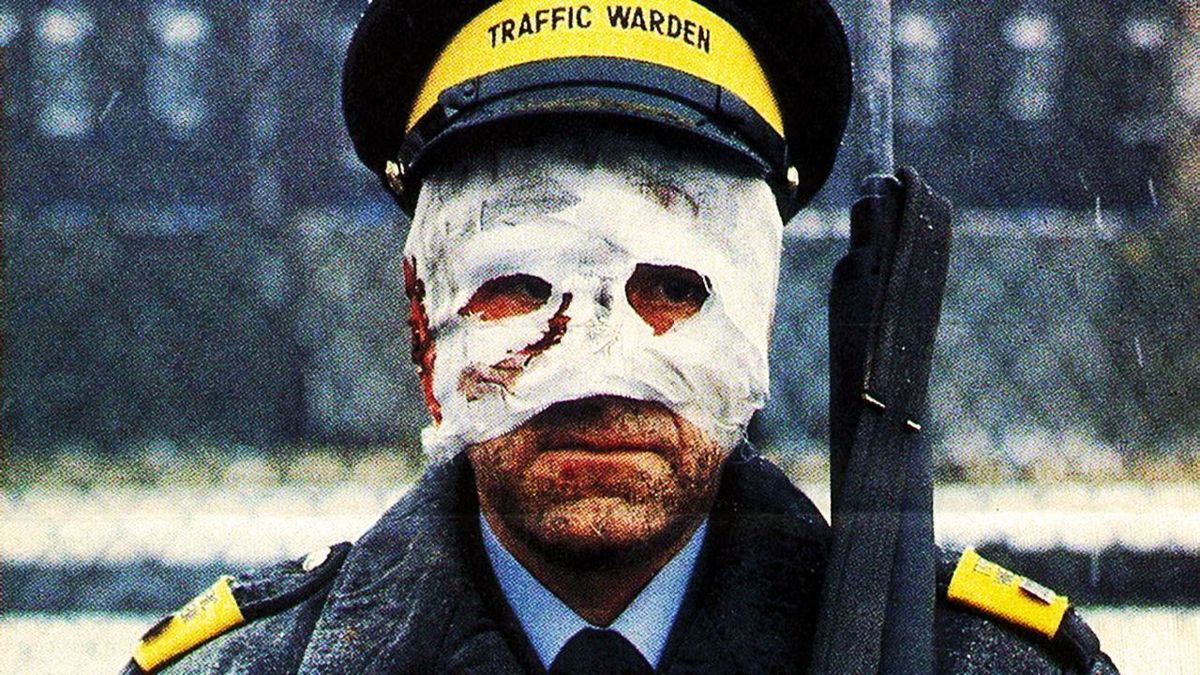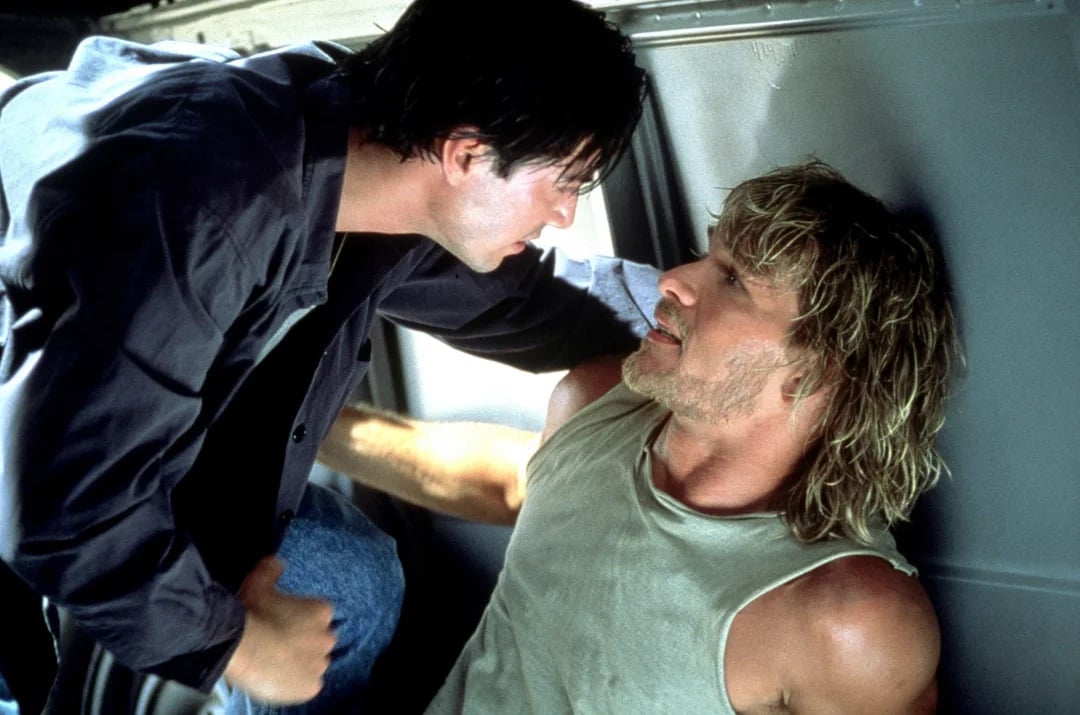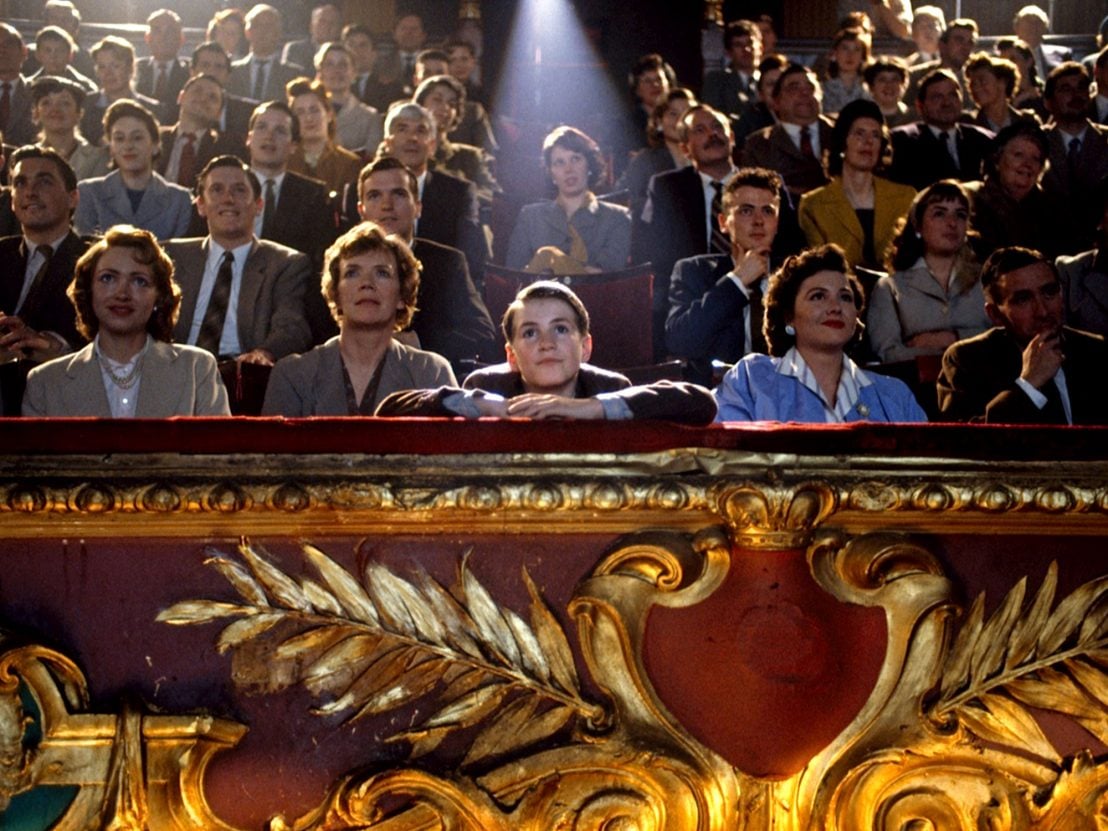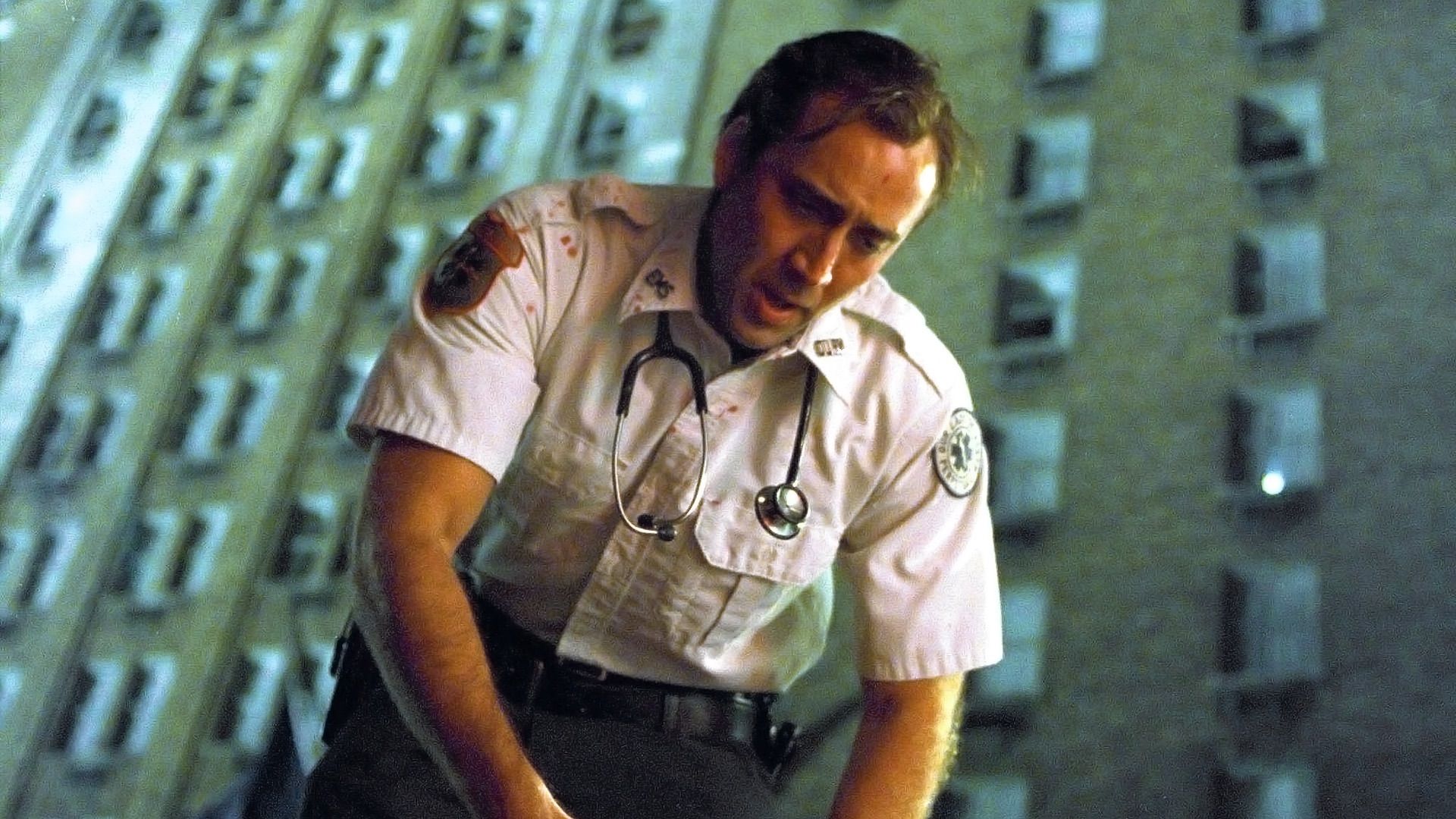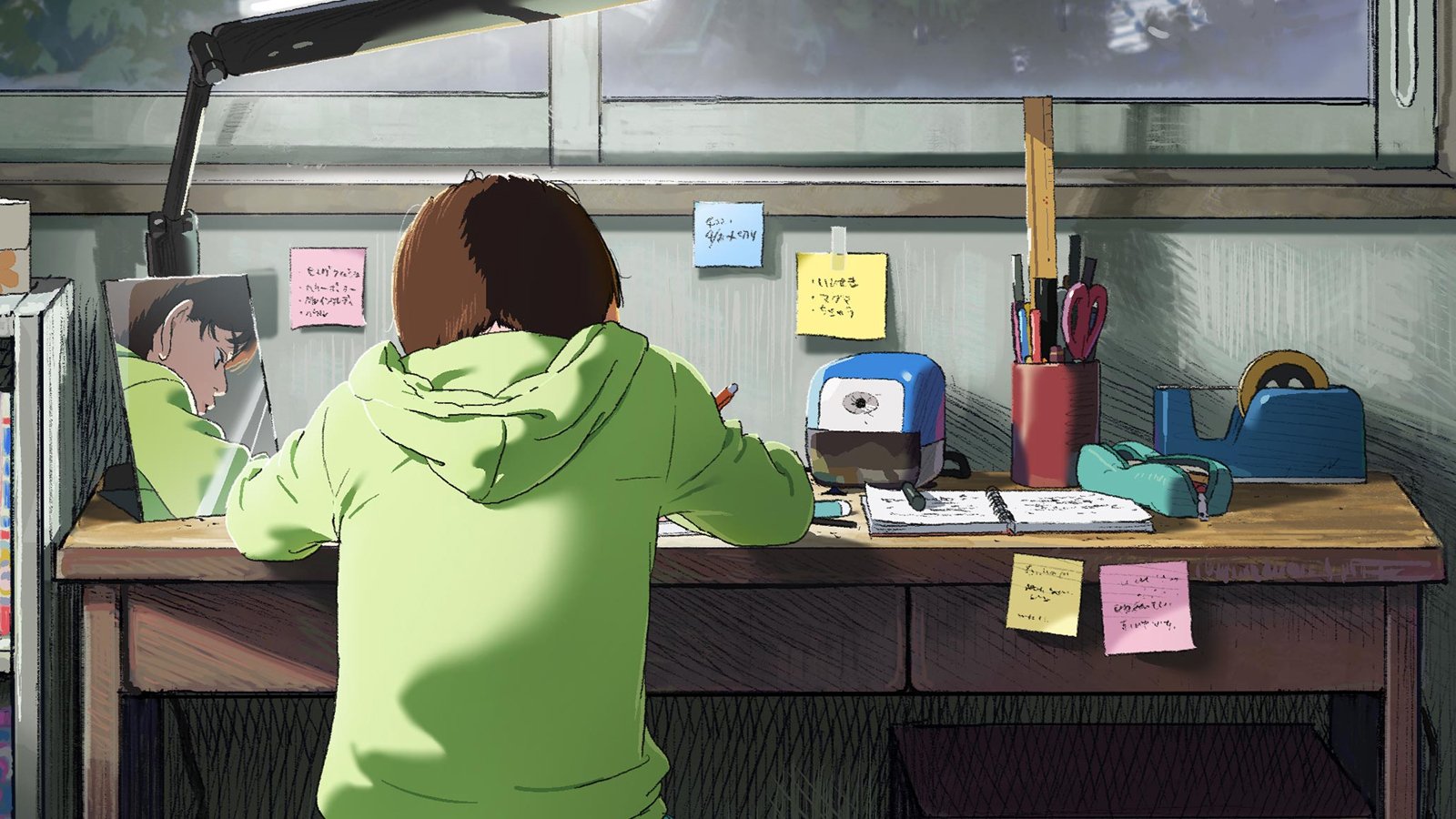
100 Best Films From Directors Under 30
April 7, 2025
Share:
In an industry dominated by seasoned veterans, these young prodigies have burst onto the scene, challenging conventions and redefining the art of storytelling. These films showcase the raw talent and unique perspectives of directors under 30 (at the time of their film’s release), proving that age is no barrier to cinematic brilliance. Prepare to be awe-inspired and witness the birth of a new generation of filmmakers who are destined to shape the future of cinema. Get ready to discover the best films by directors under 30 that will leave you in awe and eager for what’s to come.
Read also:
81. My Own Private Idaho (1991)
Genres
Director
Actors
Moods
While the film adapts some of Shakespeare’s histories, you don’t need to know Shakespeare to appreciate My Own Private Idaho. In fact, instead of focusing on the Prince Hal character, Scott Favor (Keanu Reeves), the film centers on his narcoleptic friend Mike Waters (River Phoenix). Both of them are young street hustlers in Portland. However, unlike Favor, Waters has no reliable family, inheritance, or support system waiting for him to give up his job. Waters only has his body. Writer-director Gus Van Sant doesn’t really focus on the sex or the narcolepsy – these flash by us only as a state-of-mind experience, with time-lapses and freeze-frames to impart to us Waters’ detachment. Instead, Van Sant cares more about Waters’ seeking connection. It’s why the surreal shots speed by us so fast, and why the natural, lived-in scenes remain in our heads. It’s why Waters’ campfire confession, crackling under Phoenix’s earnest voice, feels so powerful. And it’s also why his later rejection feels so painful.
82. Mary Is Happy, Mary Is Happy (2013)
Genres
Director
Actors
Moods
With a premise as insane as this—a high school coming-of-age film adapted from 410 consecutive tweets from a real, random Thai girl under the username @marylony—you would expect Mary Is Happy, Mary Is Happy to be some sort of incoherent commentary about social media. What director Nawapol Thamrongrattanarit gives us instead is a completely original and surprisingly affecting portrait of a young woman in her senior year trying to come to terms with the fact that her life may only ever be a mess of incongruous parts without a definite identity. It’s as whimsical as it is bittersweet, with the film flitting back and forth between the absurd and the melancholic.
Thamrongrattanarit structures his film as a series of loosely connected vignettes, with every single one of @marylony’s tweets appearing on screen. The effect is one-of-a-kind—as if we’re watching different layers of meaning constantly interacting with each other, our understanding of what we’re supposed to think of as serious or tongue-in-cheek always changing. And through the film’s deliberately lo-fi aesthetics, the experience of watching it is like flipping through a scrapbook of memories mundane and precious.
83. One Fine Morning (2022)
Genres
Director
Actors
Moods
French director Mia Hansen-Løve is a master at gently capturing the full bittersweetness of life, and that’s no more evident than in One Fine Morning. Léa Seydoux gives a quietly powerful performance as Sandra, a mother-of-one who is grappling with the slow, devastating decline of her philosophy professor father at the hands of a neurodegenerative disease. As she deals with the crushing trauma of watching her father deteriorate — and the logistical stress of getting him the care he needs — life grants her an oasis through a chance meeting with an old acquaintance (Clément, played by Melvil Poupaud). Despite Clément being married, the two are hurled into a passionate romance, one that re-ignites something in Sandra she thought she’d lost forever.
What’s so remarkable about One Fine Morning is its gentle empathy: Hansen-Løve appreciates that, in the context of Sandra’s life, her affair with Clément is something life-affirming and vital, worthy of sensitive consideration rather than easy judgment or melodrama. What’s more, One Fine Morning extends that thoughtful attention to the other people around Sandra, with digressions that recognize the fullness and complexity of their lives, too. This is a film that overflows with compassion and curiosity for everyone in its frame, and one that has a contagiously heart-expanding effect on its audiences.
84. Taylor Mac’s 24-Decade History of Popular Music (2023)
Genres
Director
Actors
Moods
A 100-minute highlight reel of the audacious 24-hour performance staged by artist Taylor Mac in 2016, this concert film succeeds not only in capturing the show’s eclectic mix of songs, drag costumes, and interactive audience segments, but in capturing the emotional atmosphere conjured up in that Brooklyn warehouse. The very premise of the performance is ripe for analysis: a history of America starting from 1776, progressing one decade every hour, represented by selections of popular music of the time—which Mac questions at every turn, reinterpreting and reclaiming them for a contemporary queer audience. It begins as a creatively educational exercise, but gradually becomes more and more personal, until the audience is fully involved in the performances themselves.
Even the 24-hour format transcends its gimmick. That the show becomes an endurance test is deliberate, with bonds forming in real time and the exhaustion of this ever-changing drag performance conveying the weight of all this history on the most vulnerable and misrepresented sectors—who’ve already endured continuous losses decade after decade. And still there is cause for celebration, and genuine warmth among the people slowly becoming more vulnerable with each other over 24 hours. It’s a beautiful, intelligent, frequently funny, and ultimately moving experience in a class all its own.
85. Truly, Madly, Deeply (1990)
Genres
Director
Actors
Moods
Don’t be fooled by its obvious parallels to Ghost (not a bad film, but a very different one): Truly, Madly, Deeply isn’t much concerned with the supernatural logistics of its back-from-the-dead-boyfriend premise, and it doesn’t feature any psychics or murders, either. In fact, there’s an argument to be made that everything that takes place here happens in its protagonist’s imagination — that’s how much it ignores the ‘how’ of it all.
Instead, this deeply warm rom-com from the great Anthony Minghella grapples head-on with the emotional challenges of grief and moving on. Juliet Stevenson’s performance as the bereft Nina is up there as one of the most moving portrayals of loss the screen has seen, and not just because of how believable her intense cry-acting is. When she realizes her deceased boyfriend Jamie (Alan Rickman, as seductive and sardonic as always) has returned to the land of the living, her euphoria brings to aching life the dream that everyone who’s ever lost a loved one must surely have dreamt: how joyous it would be to see them again. Blending such raw observations with wry humor — and anchored by two leads with genuine chemistry — this is a profoundly moving and rewarding movie.
86. The Kid With A Bike (2011)
Genres
Director
Actors
Moods
The Kid With A Bike is a deceptively simple title for a film this stirring. At 12 years old, Cyril (Thomas Doret) has been abandoned to social care by his father (Jérémie Renier) — but what’s really heart-wrenching is that he’s in denial about the finality of their separation. Cyril’s muscles are seemingly always coiled, ready to spring him away from his carers and onto the next bus that’ll take him to his disinterested dad, who has secretly moved away to “start anew.” It’s only through the random force of Cyril’s few words — like the moment he asks the first stranger to show him some kindness (Samantha, played by Cécile de France) if she’ll foster him on the weekends — that we get to sense the depth of his desperation, because neither the film nor Doret is showy in that regard.
The film pulls off transcendency because of these restrained performances and its unfussy realism. In the quietness of the storytelling, emotion hits unexpectedly — and deeply. The everyday tragedy and miraculous hope of Cyril’s life are set off by some enormously moving orchestral Beethoven, the very grandeur of which underscores the effect of the humanist filmmaking: affirming the inherent preciousness of his troubled, oft-rejected child.
87. Threads (1984)
Genres
Director
Actors
Moods
Named for all the connections that form a functioning society, Threads is a harrowing look at what might happen when those ties are rent apart by nuclear war. This British TV movie — released during the Cold War — so violently seized on the nuclear anxieties of the time that its premiere was dubbed “the night the country didn’t sleep.” Depressingly, it hasn’t lost that initial resonance, and so it remains a panic attack-inducing watch.
Threads begins in the kitchen-sink vein of a Ken Loach movie. In the northern industrial town of Sheffield, a young couple from different social classes (Reece Dinsdale and Karen Meagher) discover they’re about to be parents — but looming above their small-scale drama are the clouds of war, as televisions and radios blare out the details of escalating tensions between the US and the USSR. And then, it happens: the town is strategically bombed, and Threads unfurls into an unrelenting nightmare. In the documentary-like approach that follows, it spares no graphic or emotional detail, charting both the personal devastation caused by the bomb and the annihilating impact of the nuclear holocaust on all the vital infrastructure we take for granted. In short, one of the bleakest, most terrifying movies ever made.
88. Point Break (1991)
Genres
Director
Actors
Moods
Kathryn Bigelow has a knack for action-packed scenes without compromising on the affective qualities of film style. It is precisely this combination that makes her a rare gem in American cinema, where the values of entertainment soar high. Point Break is one such example of controlled chaos, impeccable framing, and a convincing use of fast-paced editing to really get you as close to the action as possible. But what gives the film its flavour is how developed and synced the characters are and the Reeves-Swayze duo here belongs in the pantheon of equally hot frenemies, providing an apt, but subtle comment on the dangers of toxic masculinity.
Read also:
89. The Long Day Closes (1992)
Genres
Director
Actors
Moods
This poetic memoir by the late director Terence Davies opens with a tracking shot that takes us down a rainy, dilapidated Liverpool street, finally settling on the wet staircase of a roofless house as three audio tracks morph into one another: a Nat King Cole song, dialogue from a movie, and, finally, a boy calling for his mother. Just as we hear the latter, the shot of the exposed staircase dissolves, taking us into the past to reveal the owner of the voice sitting in the same spot — only now, the stairs are dry, the roof restored.
The scene perfectly encapsulates the film: it’s a dreamlike pool of sensory recollections from that lonely boy’s childhood, assembled according to the strange logic of memory. Music and movie dialogue echo across the film as we watch snapshots from Bud’s (Leigh McCormack, playing a proxy of Davies) early years. Though most of the memories radiate warmth — Christmases with family, euphoric cinema trips — a note of melancholy tinges these blissful recollections. Callously cruel schoolmates, desperate church prayers, and instantly rueful stolen glances jar against the nostalgia and let us know that something dark is coming. Intensely, painfully intimate, this is one of the best and most unbearably sad evocations of memory in cinema.
90. Bringing Out the Dead (1999)
Genres
Director
Actors
Moods
Martin Scorsese — plus screenwriter Paul Schrader, editor Thelma Schoonmaker, and cinematographer Robert Richardson — reimagine nocturnal New York City as an eternally flaming circle of hell in this darkly funny fever dream. Frank Pierce (Nicolas Cage) is an insomniac paramedic who’s haunted by the ghosts of all the lives he couldn’t save and is on a nightmarish run of losing every patient he tries to help. There’s no respite for him anywhere; he’s so burnt out he begs to be fired, but the city is so desperate they won’t let him leave their tired ranks of medics, who are mostly jaded, sometimes sadistic, and yet still addicted to the euphoric high of saving a life.
As Frank is pushed ever closer to breaking point, the film takes on the hallucinatory qualities of his perspective, the cinematography growing feverish and the editing powered by a wild, manic energy. What stops the movie from feeling like a spiral into actual hell is the strange light that keeps Frank returning to work — the perpetual need for redemption and grace that prevents him from becoming cold to his job but makes his sanity fragile. In typical Scorsese-Schrader style, this is a raw, visceral, and very human search for grace in an unsparing urban hellscape.
Comments
Add a comment
Ready to cut the cord?
Here are the 12 cheapest Live TV streaming services for cord-cutting.
More lists
Lists on how to save money by cutting the cord.
Curated by humans, not algorithms.
© 2025 A Good Movie to Watch. Altona Studio, LLC, all rights reserved.
